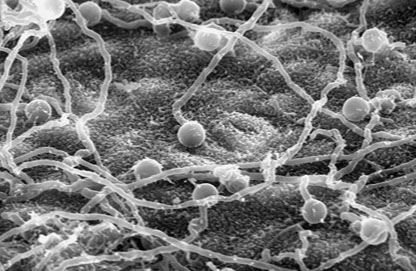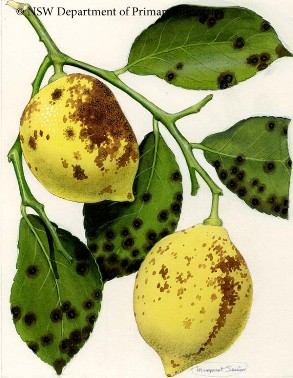Passion Fruit
BIO 203
Interactions
Passiflora edulis has interactions with many other species, due to the fact that it is a primary producer, a food source for other organisms.
 Parasitic
nematodes are a serious problem, especially in Florida. They
reduce fruit production and decrease the life of the passion fruit
plant. They also leave it more susceptible to attack of fungus in the
soil. For some reason, the yellow form seems to be more resistant to
disease than the purple form, which is why yellow passion fruit is more
commonly cultivated in Florida.
Parasitic
nematodes are a serious problem, especially in Florida. They
reduce fruit production and decrease the life of the passion fruit
plant. They also leave it more susceptible to attack of fungus in the
soil. For some reason, the yellow form seems to be more resistant to
disease than the purple form, which is why yellow passion fruit is more
commonly cultivated in Florida. 
Nematodes, fungi, and protists (species of Phytophthora, Septoria, and Fusarium) have been found on the fruit and roots of declining or drying vines. One sign of parasitic invasion is presence of lesions near the bottom of the stem, which can destroy a vine that is already a couple years old.
Passion fruit also provides a food source for other organisms. Let's jump over to the Facts page where you can see all the tasty things passion fruit is used for!
Home